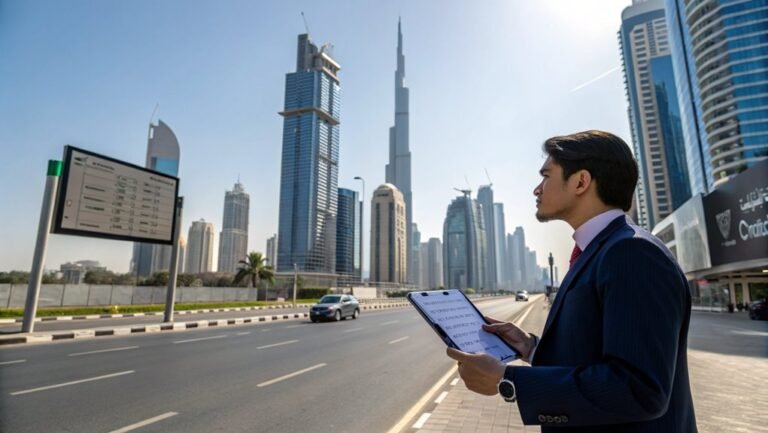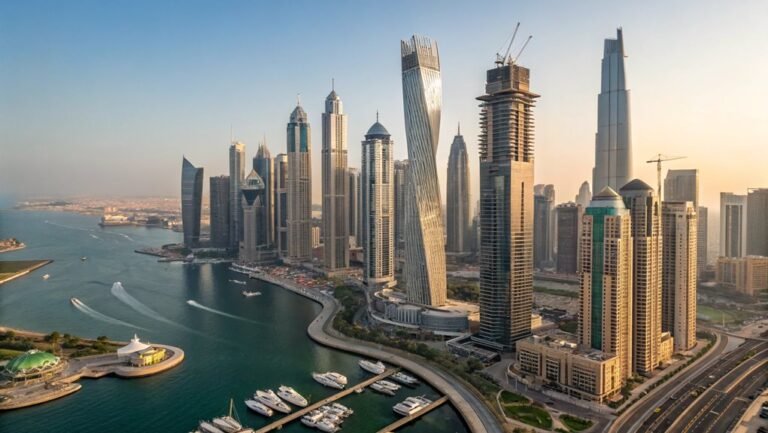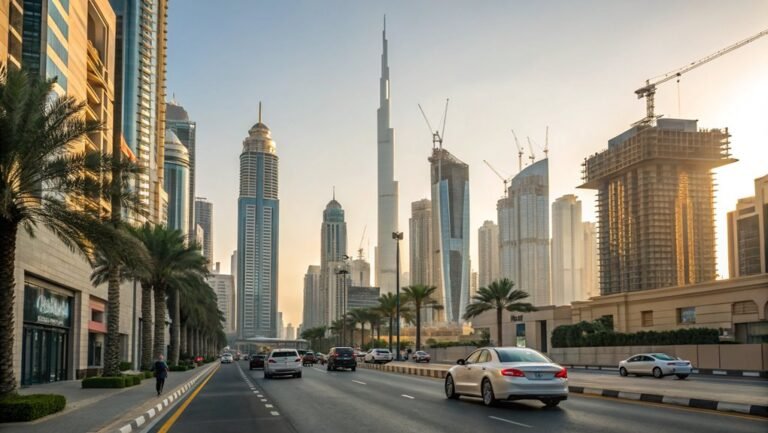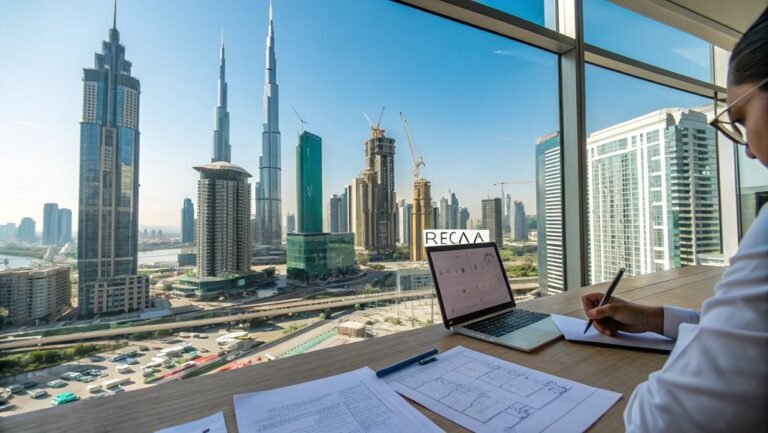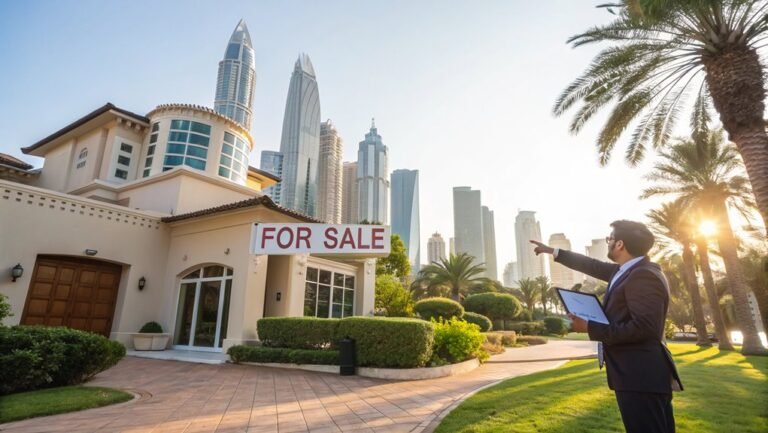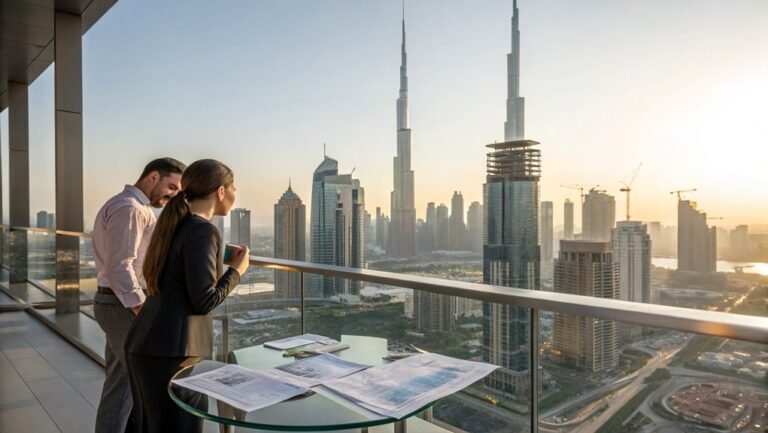What Is the Difference Between a Buyer’s Market and a Seller’s Market in Dubai Real Estate?
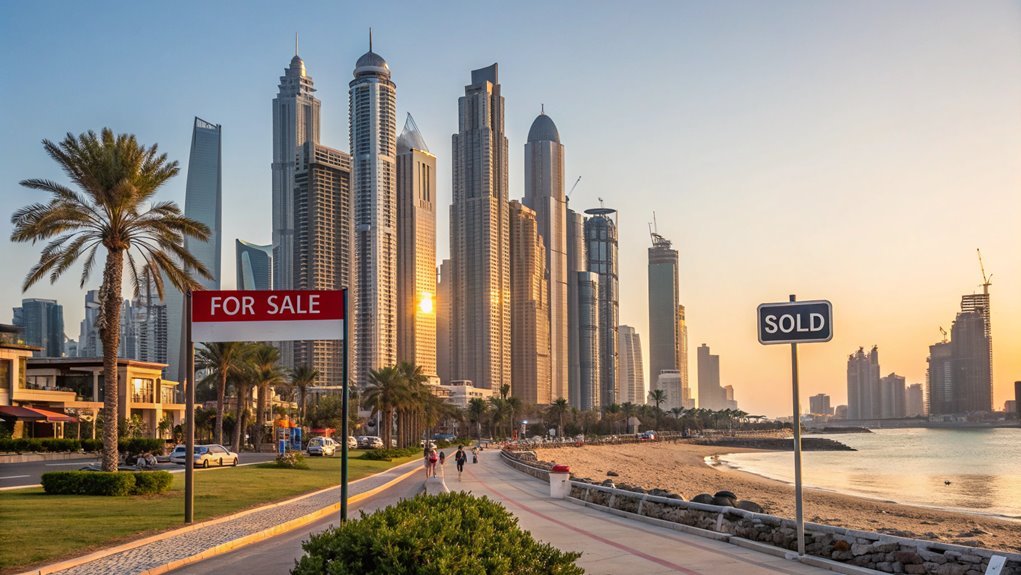
In Dubai's real estate market, a buyer's market provides an advantage with abundant properties and negotiable prices. This environment results in less competition, allowing for strategic purchasing decisions with attractive deals, especially in affordable and mid-market segments due to investor-friendly policies.
Conversely, a seller's market is characterized by high demand and limited supply, pushing prices up as buyers compete for limited inventory. This is particularly evident in premium areas, where prices often rise above asking prices.
Recent data shows strong demand, with residential prices increasing by 21.3%. As the market approaches a projected $140 billion value by 2024, intriguing trends continue to unfold.
Key Takeaways
- A buyer's market features abundant properties and slower sales, allowing purchasers to negotiate prices below asking.
- In a seller's market, high demand and limited supply drive up prices, favoring sellers.
- Buyer's markets offer less competition and more decision-making time for purchasers.
- Seller's markets often see properties selling quickly at or above asking prices.
- Economic growth and favorable policies can influence demand and market dynamics in Dubai.
Buyer's Market Characteristics

In a buyer's market, the real estate landscape favors purchasers with slow sales and abundant properties, giving you a significant advantage. Declining prices allow for negotiating below asking prices, and less competition means more time to decide. Lower transaction volumes, especially in the luxury segment, shift focus to affordable and mid-market properties. The increased demand for value-for-money properties in Dubai illustrates a shift towards more strategic purchasing decisions. You can leverage these conditions for better deals and terms, benefiting from longer market exposure and flexible negotiations, empowering you with choices and strategic advantages. Additionally, investor-friendly policies in Dubai, such as long-term visas for property investors, make it an attractive location for those looking to benefit from the buyer's market conditions.
Let us help you find the perfect property. Contact us to get started.
Seller's Market Features
In Dubai's real estate sector, a seller's market is driven by high demand and limited supply, enabling sellers to maximize returns. Post-pandemic recovery and strong investor confidence have led to successive price increases, with apartment prices rising by 3.7% and villa prices soaring by 200%. The market is nearing saturation, prompting some investors to seek higher returns in different ventures. Limited inventory, especially in premium locations, enhances seller advantages for substantial profits.
- Investor Confidence: Increased transactions reflect a strong market and optimistic outlook.
- Price Appreciation: Commercial property prices rise by 6.5% monthly, and plot prices by 1.8%.
- Absorption Rates: High absorption rates indicate sustained demand and quick property turnover.
These factors position sellers strategically in Dubai for lucrative returns.
Key Indicators in Dubai
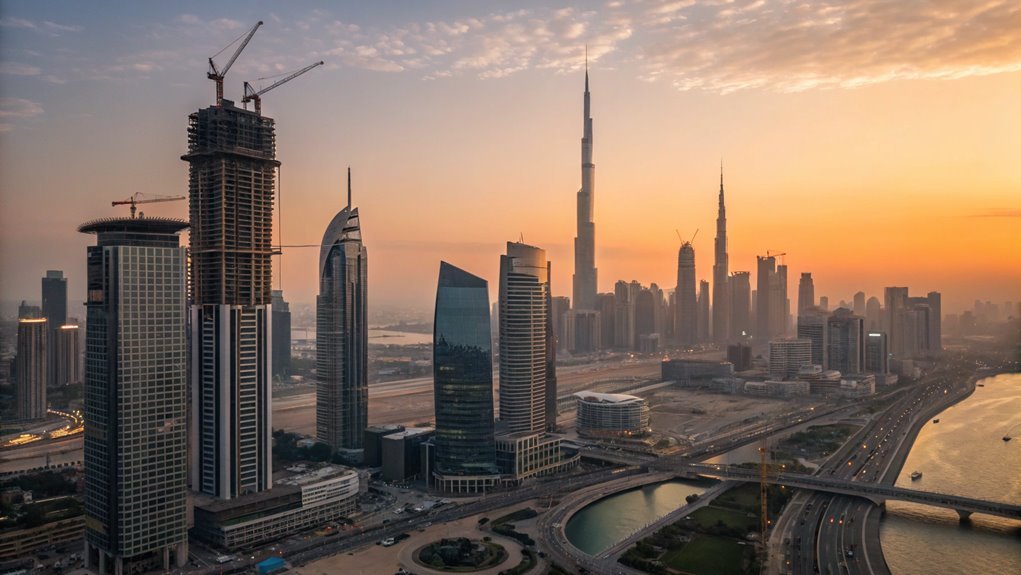
In Dubai's real estate market, sellers currently hold the advantage. High demand results in properties selling quickly, often at or above asking prices, indicating a seller's market. Prices are rising, unlike in a typical buyer's market. Although 41,000 new units are expected in 2025 and 42,000 in 2026, potentially leading to oversupply, this has yet to impact the market. With the total market value reaching $140 billion in 2024, the competitive landscape is evident. Economic growth of 4.5% and favorable visa reforms are driving demand. Thus, despite future supply increases, the market remains seller-driven for now.
Market Dynamics in Dubai
Dubai's real estate market leans toward a seller's market, with residential transactions surging by 27.6% in early 2024 due to high demand. Limited supply is pushing prices and rents up, especially in prime areas. Although new launches are increasing, current supply constraints are likely to keep prices rising in the short term. The overall market resilience, supported by foreign investment, reduces the risk of a real estate bubble.
- Demand vs. Supply: With 73,600 transactions, demand exceeds inventory, heightening competition.
- Price Surge: Residential prices have risen by 21.3%, driven by villa and apartment sales, favoring sellers.
- Future Supply: The expected delivery of 41,000 units in 2025 might balance the market but won't immediately ease current constraints.
Current Real Estate Trends
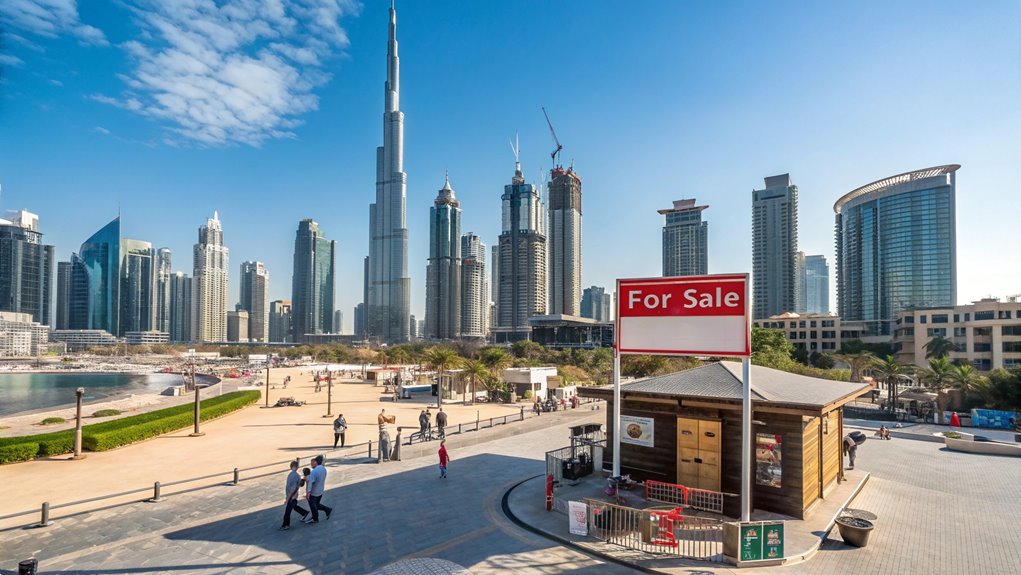
In Dubai's seller-favored real estate market, the first half of 2024 saw 75,543 residential transactions, marking a 36% year-over-year increase. The total sales value reached AED 191 billion, up 17%. Luxury sales grew by 47%, highlighting strong demand in the high-end market. Strong demand for high-quality rental properties is driving market dynamics, as evident from the 12% increase in prime rents. Average residential prices rose by 20.1%, driven significantly by villa prices. Key metrics show a market in an upswing:
- Residential Transactions: 75,543 (+36% YoY)
- Total Sales Value: AED 191 billion (+17% YoY)
- Luxury Sales Transactions: 47% increase
These trends reflect a robust market growth.
Frequently Asked Questions
How Do Long-Term Visas Impact Dubai's Real Estate Market?
Long-term visas in Dubai boost real estate demand by attracting foreign investors and residents seeking stability. You're likely to see increased property values and transaction volumes, as people commit to living and investing in Dubai's resilient market.
What Sustainable Practices Are Being Adopted in Dubai Real Estate?
You're witnessing Dubai's push for sustainability through renewable energy, LEED certifications, and smart technologies. They've adopted solar and wind energy, reducing fossil fuel reliance. Green building practices and smart systems enhance efficiency, aligning with ambitious clean energy targets.
How Does Dubai's Economic Growth Influence Real Estate Trends?
You see Dubai's economic growth boosting real estate trends through increased investments, job expansion, and infrastructural development. This growth attracts high-net-worth individuals, driving demand, while government policies and tax advantages further enhance market appeal.
What Role Do Regulatory Policies Play in Dubai's Real Estate Market?
You rely on regulatory policies to guarantee transparency and stability in Dubai's real estate market. They protect investments through strict adherence to guidelines, fraud prevention, and continuous monitoring, creating a secure environment for both buyers and sellers.
How Is the Luxury Segment Affecting Overall Market Dynamics in Dubai?
You're seeing the luxury segment drive market dynamics with surging prices and high ROI. International demand and limited supply push prices up, impacting economic growth. Investors flock to exclusive areas, boosting Dubai's real estate and related sectors.
Conclusion
In Dubai's real estate scene, understanding market dynamics is essential. A buyer's market means more options and bargaining power for you, as supply outpaces demand.
Conversely, a seller's market offers limited choices and drives up prices, favoring sellers. Key indicators like inventory levels, price trends, and transaction volumes help you navigate these shifts.
Currently, trends suggest a balanced market. However, staying informed will enable you to make data-driven decisions and seize opportunities effectively.
Let us help you find the perfect property. Contact us to get started.

